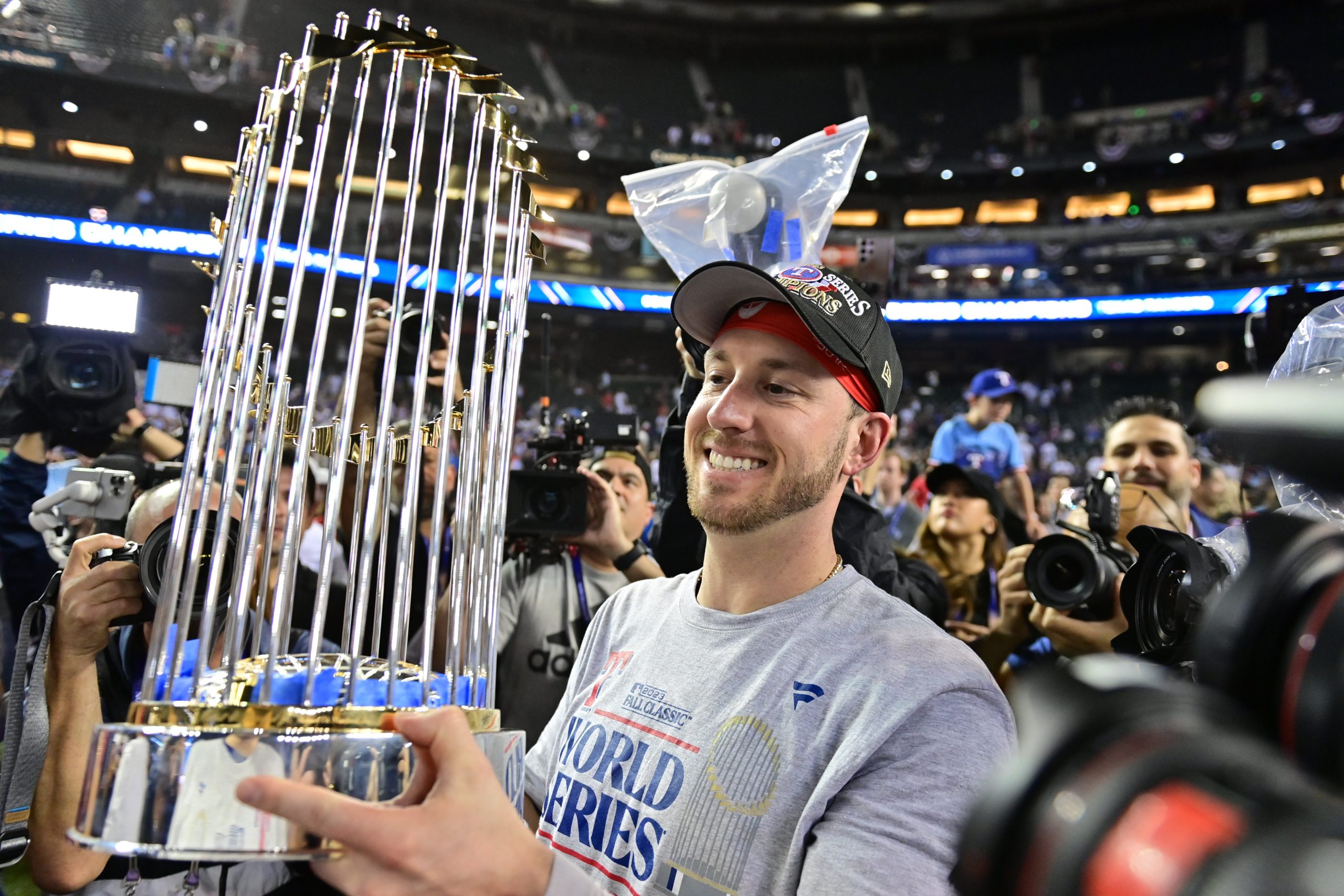By Mark Baldwin
“I’M glad I won, but I feel sorry.”
Tears, regret and sympathy, all for a fighter who was once his idol. It was a night when the torch didn’t need to be passed, yet it seems an unwritten rule in a sport that won’t let its former heroes pass through without at least one moment where it touches on the uncomfortable; the time-honoured tradition that is nearly always less than honourable.
Joe Louis had reigned as the heavyweight champion of the world for 12 years. Twenty-five successful defences before the retirement call was made in 1949, Louis chased peace and another life. But the IRS chased him, and so Louis had to return to his old life.
One assessment had Louis owing a reported $1,250,000, half of it in unpaid taxes. With unpaid interest, too, it would go much higher. A career put on hold while he did service for his country in the Second World War, he returned in debt – a debut he couldn’t pay. A return to the ring therefore was inevitable. But no less sad. A little further down the ladder of decline. How can a fighter move forward when he can’t go back? Louis wasn’t the first fighter to find that retirement didn’t set him free.
But even before the initial retirement in 1949, the signs of decay were evident. The two fights with Jersey Joe Walcott told us that. Louis listened.
In 1947, Walcott dropped Louis twice and was deemed extremely unfortunate not to have his hand raised after 15 rounds. In the rematch a year later, Louis struggled again. Behind on points, Walcott looked set for revenge heading into the 11th round. The old champion found the punches he needed to save his title, if not his career. Retirement was the sensible call. The only call. Those two fights in New York told a story of a fading fighter. Louis didn’t argue with that narrative. At least not until he had an excuse to do precisely that.
In 1950, over two years since his last fight, Louis laced on the gloves once again. In search of money and plenty of it, Louis returned looking to regain his world heavyweight title, now held by Ezzard Charles. But there was no to be no magical time machine. Fighting the clock as much as Charles, Louis barely won a round and was soundly outpointed over 15 tepid rounds. But Louis still fought on. In truth, he had no choice. Louis fought eight times in the next year, all wins. They only brought false hope and a fight that would finally bring his magnificent career to an end.
Louis was once the idol; now the rival. Rocky Marciano, meanwhile, was 37-0, and his ascent to the upper echelons of his division was moving in the right direction. But he still had doubters to convince, of course.
Louis entered that Madison Square Garden ring in 1951, older, heavier, and slower than in his peak years. But the odds remained in his favour; at least with the oddsmakers, if not in reality. Money laid with sentiment; sympathy even.
Louis would earn $132,000, a drop in the ocean that barely scratched the surface for the relentless and unforgiving taxman.
The great wordsmith AJ Liebling wrote of Louis before his fight with Marciano: “A superbly conditioned man of 37 is still young. It’s when he gets in a ring that age comes on him.”
Liebling was never more right.
The hair was thinning, the body was thicker, and punches were thrown in slow motion in comparison to how they once were delivered. We didn’t need to see it, in truth, and Louis’ body certainly didn’t need to feel it. It was a story told far too often in a sport that is far less noble than is perceived. Marciano didn’t want to fight someone he once worshipped.
“This is the last guy on earth I want to fight,” he had said, yet the whispers in his ear convinced him that beating Louis would edge him a little nearer to the pinnacle of his sport. It still took him another year to land that elusive title shot, however.
In so many ways, it was a fight we didn’t need to see. Marciano certainly would have got to where he needed to be without having to humiliate his idol.
On the night Sugar Ray Robinson was ringside. There was no crystal ball. If there was, he might have seen his future also. But do we really need a mystical sphere when boxing history tells the same story over and over? When will fighters ever learn?
The early rounds were a decent enough tribute act, with even a few glimpses of the old magic from Louis. The rawness was evident in his opponent, a fighter who, despite more than a few scares along the way, would never lose inside a boxing ring. It was initially competitive, the fight, but there also remained a feeling that it would only be a matter of time before the stamina would fade enough for Marciano to put the final nail in the coffin of the proud old warrior. Only the delusional would have expected the resistance to last until the final bell. Thoughts of the past would soon be replaced by the brutal harsh realities of the present. Boxing is no place for nostalgia.
One knockdown in the 8th round was the beginning of the end. A second one then finished more than just the fight.
It was beyond sad seeing Louis lying on the floor in that round, his balding head hanging through the ropes amplifying the sadness. He didn’t want to be there. He shouldn’t have been there. Why can’t the sport do more for its fallen warriors? In defeat, Louis found pity. He deserved more.
Louis never fought again, of course. At least, not inside a boxing ring. Drowning in debt, he turned to wrestling before even his name ran out of value. In later years, he was then reduced to shaking hands in Las Vegas hotels. As one scribe wrote, he “never found a job to match his dignity”.
Marciano, meanwhile, left the sport on his terms. Trust me, that is a rarity. He won the world heavyweight title the year after he bludgeoned his former idol into permanent retirement and was forty-nine fights unbeaten when he retired after a 9th round stoppage of Archie Moore in 1955. Despite fleeting thoughts of a comeback, Marciano would wisely ignore any temptation to return. A farcical computer fight with an exiled Muhammad Ali that involved a toupee and tomato ketchup was the nearest he came.
Tragically, in 1969, on the eve of his 46th birthday, Marciano was killed in a plane crash. Louis was allowed to grow old, then, albeit without dignity, whereas in the end Marciano was denied even that.



